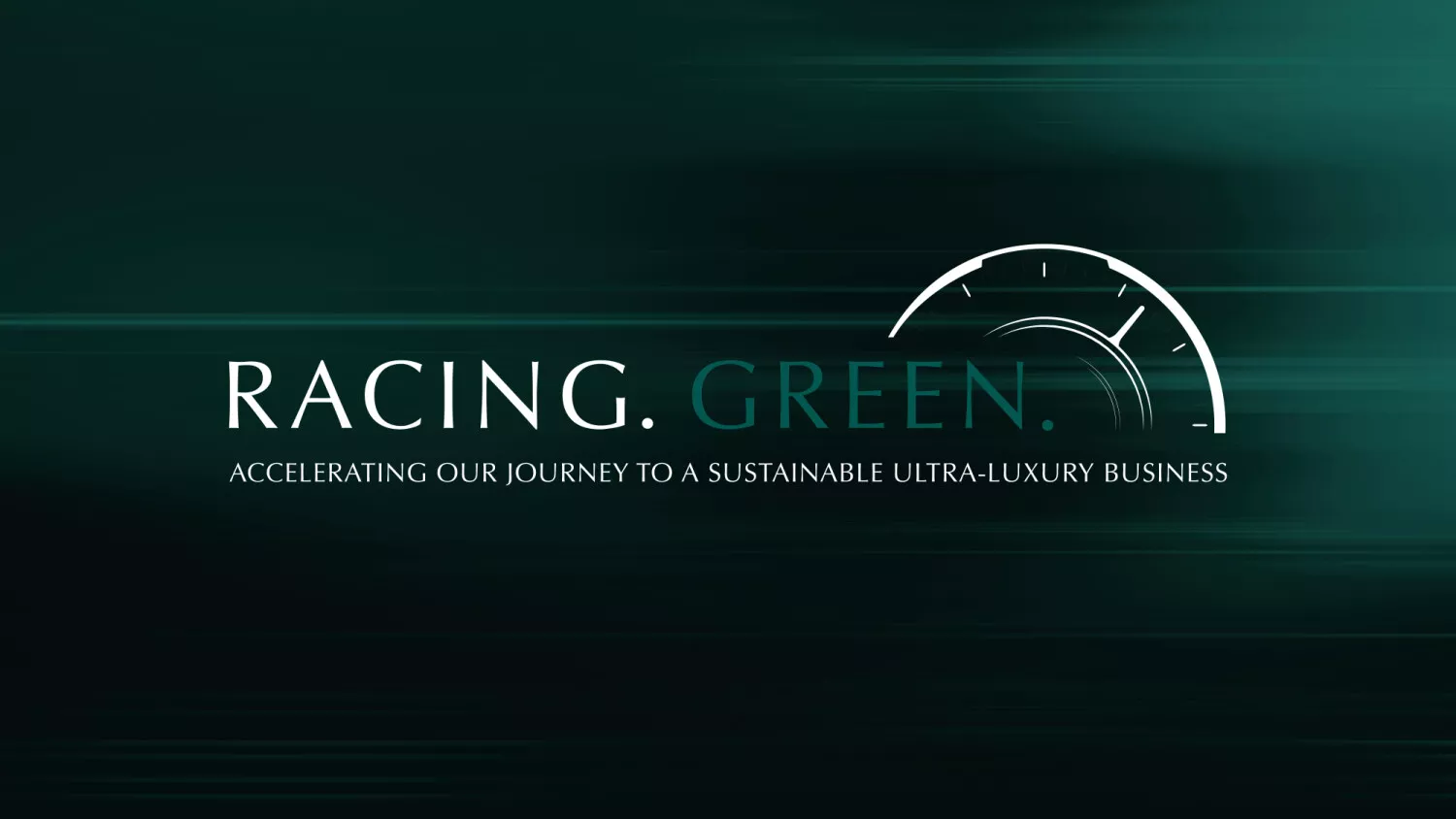- Racing.Green. sustainability strategy to be embedded throughout Aston Martin and overseen by dedicated Board Sustainability Committee
- Accelerating action on climate change with commitment to the Science Based Targets initiative (SBTi) Net-Zero Standard, targeting net-zero manufacturing facilities by 2030 and across the company’s entire supply chain by 2039
- Clear roadmap to electrification with first hybrid electric car commencing deliveries in 2024, first Battery Electric Vehicle (BEV) targeted for launch in 2025 and fully electrified Sport/GT and SUV portfolio by 2030
22 April 2022 - Gaydon, UK: Aston Martin has today hit the accelerator pedal on its journey to becoming a world-leading sustainable ultra-luxury automotive business, with the announcement of an ambitious new sustainability strategy, Racing.Green.
Launched on Earth Day, Racing.Green. formalises core principles, aligned with the UN Sustainable Development Goals, that reflect Aston Martin’s established approach to sustainability and sets bold new targets across all aspects of the business with a focus on tackling climate change, creating a better environment and building a stronger, more diverse, and more inclusive company.
The ultra-luxury British manufacturer has joined a list of ambitious companies committing to act on climate change through membership of the Science Based Targets initiative (SBTi), the global body enabling businesses to set emissions reduction targets in line with climate science.
Within the commitments announced in Racing.Green. Aston Martin is targeting Net-Zero emissions from its manufacturing facilities by 2030, with a 30% reduction in supply chain emissions from a 2020 baseline. The company has outlined an ambition to achieve Net-Zero emissions across its entire supply chain by 2039.
The new targets build on Aston Martin’s sustainability progress to date, with a 44% reduction in emissions intensity in its UK operations between 2020 and 2021 and 100% renewable energy used across all its UK manufacturing facilities since 2019. A major project will see Aston Martin install more than 14,000 solar panels at its St Athan site in Wales, capable of delivering 20% of the plant’s annual energy demands.
100% of waste at Aston Martin is already successfully diverted from landfill, with a target to eliminate all plastic packaging waste at Aston Martin within three years. The Racing.Green. strategy also targets the reduction of water consumption by 15%, maximisation of sustainable materials and enhancement of biodiversity across all sites.
Renowned for its product longevity, exclusivity and hand-built craftsmanship, Aston Martin has manufactured fewer than 109,000 cars in its 109 year history – with 95% of these highly treasured cars estimated to be still on their journey.
Sustainability principles will also be embedded into Aston Martin’s future product strategy, including a clear roadmap to electrification. Aston Martin is developing alternatives to the internal combustion engine, with its first plug-in hybrid - the mid-engine supercar Valhalla – to commence deliveries in early 2024. Aston Martin’s first battery electric vehicle is targeted for launch in 2025, and by 2026, all new Aston Martin product lines will have an electrified powertrain option. Aston Martin plans for its entire core portfolio of GT sports cars and SUVs to be fully electrified by 2030.
The use of innovative sustainable materials in Aston Martin cars is also being expanded, including exploring the use of green aluminium alloy - manufactured using 100% renewable energy - and leather-free vegan interior options, to provide greater customer choice and reduce environmental impact.
As part of its Diversity, Equality and Inclusion strategy, Aston Martin is targeting 25% of all leadership roles to be filled by women within the next five years.
The Racing.Green. strategy, and progress towards its goals, is overseen by a Board Sustainability Committee chaired by Non-Executive Director Dr Anne Stevens.
Tobias Moers, Chief Executive Officer of Aston Martin Lagonda, said: “Aston Martin is accelerating. We are transforming our business and believe that now is the time to challenge ourselves to make a bigger difference, to become a world-leading sustainable ultra-luxury business.
“Whilst embracing electrification, we believe our sustainability ambitions must be broader than just producing emissions-free vehicles, and want to drive sustainability principles across our entire business, with a team representative of society proudly producing responsible products with a reduced environmental impact and making a positive contribution to the communities where we operate.
“Applying our passion for engineering and design innovation to this challenge, we are excited about shaping not just how quickly the world gets from zero to sixty, but how quickly we get to Net-Zero.”













